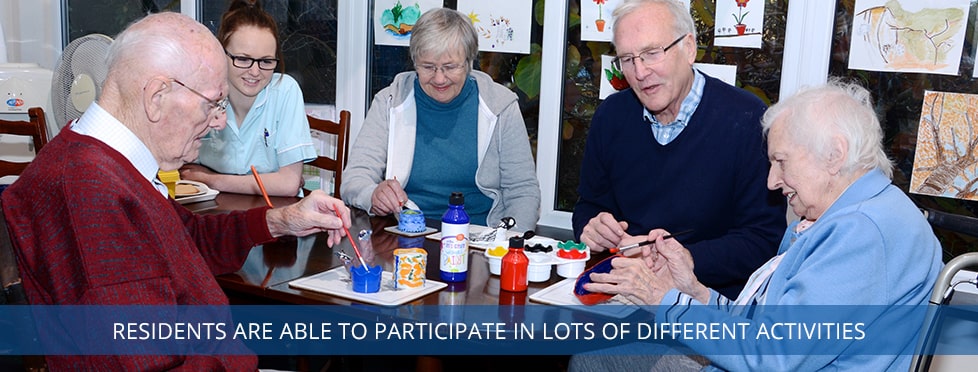What Are Care Plans in Nursing Homes and Why Are They Important?
Moving into a nursing home is usually done because your loved one can no longer live independently. The process of making this decision and finding the right care home can be incredibly difficult and emotional.
When searching for a nursing home, you want to be confident that they will provide the correct type of care, and even if the nursing home does provide that care, there is always a worry as to the quality of the care. Will it be a continuation of what they are already receiving? Will they take time to get to know your loved one's preferences? Will they develop the care as your loved one's needs change?
In order to ensure all of these concerns are addressed, a nursing home will implement a care plan. This document makes sure that your loved one receives the right care as and when they need it.
What is a care plan?
A care plan is the bible of care for each resident in a nursing home. These documents are bespoke to each person, detailing their health condition and the care required, as well as their preferences for how they like to receive their care.
Every staff member in the home will have access to this document and will reference it when providing care to your loved one. This means you can be confident your loved one will receive the care they need in a way they are happy with.
A care plan will be created following a care assessment carried out by the nursing home before admission. It is a working document that will evolve as your loved ones needs develop.
Why is a care plan important?
Care plans are a vital part of nursing home care for several reasons.
Maintaining independence
Despite being in a nursing home, maintaining independence is encouraged. A care plan facilitates this as it enables care staff to assist only when necessary, allowing your loved one to complete activities within their capabilities by themselves.
Determine the level of care
Care plans determine the level of care that your loved one receives, ensuring it matches their health conditions and abilities. For example, if your loved one is living with advanced stages of dementia, it will ensure they receive the highest level of care reflective of what they can and can't do for themselves.
Continuity of care
A care plan will be developed off the back of an assessment completed by staff of the care home. It will take into consideration the current care being given and input from family members.
This process ensures that the nursing home is aware of current care so that they can provide continuity of care to your loved one.
A care plan doesn't just ensure continuity of care during the transition of moving into the home. It also provides a document for staff to refer to at any time, making sure that the staff provide long-term, consistent care.
Likes, dislikes and routines are respected
The care plan will also include details of how your loved one likes to receive care, as well as personal preferences on their daily routines.
For example, the care plan can detail what time your loved one likes to be woken up, when they like to eat, or even how they like their tea.
This means that your loved one can continue to live the life they would like and stick to the routines they have developed at home.
Activities and hobbies are also included in a care plan so that staff can work to add these activities to the home's activity programme and encourage your loved one to participate.
Meeting change of needs
Care plans aren't set in stone. They are constantly reviewed and updated to match the developing needs of your loved one. This means you can be confident that your loved one will be receiving the care they need at all times, even as their needs grow.
Confidence for the family
As the creation of the care plan will include the family and any current care providers, you can be reassured that the nursing home will meet your loved one's needs and that they are receiving quality care.
What is included in a care plan?
As a family or friend of your loved one, you should be involved in the assessment and creation of the care plan so that you can advocate for your loved one, as well as add insight into the current situation.
Several elements will always be included in a care plan:
- Results of the care assessment
- Care and support to be given
- Mobility equipment that might be needed
- Desired outcomes of the person going into care
- Who should provide the care
- When care and support need to be provided
- Medication
- Cultural and ethical background - including gender, sexuality and any disabilities
- Dietary needs
- Mental wellbeing - present and historic
- Records of care provided
- Personal care preferences
- Cost of care
- End-of-life preferences
Care plans can include more information and should always be shared with the family of the resident.
Each aspect of a care plan will be regularly reviewed and updated to ensure it reflects the needs of the resident at all times.
How is a care plan created?
There are several stages to creating a care plan.
Step 1 - Care needs assessment
A staff member from the nursing home will visit your loved one at home or hospital, if that is where they are, to conduct a thorough assessment of their current care needs and the care they are receiving. This will include reviewing symptoms and medical needs.
Step 2 - Making a diagnosis
A diagnosis is made for the level and type of care needed. This is used to form the basis of the care plan, determining the tailored care and assistance that will be given.
Step 3 - Setting goals
Goals are set for the residents to ensure they receive the best possible care while remaining as independent as possible. This stage is critical as it also helps make sure the resident will be comfortable in the nursing home. The goals are commonly short-term goals such as reduction of pain, improvement in vital signs, recovery, or adapting to their new home environment. These will be directly related to their diagnosis.
Step 4 - Implementing the plan
This stage is where care staff will customise their care to achieve the specific goals set out. This means using particular nursing techniques to ensure residents receive top-quality care.
Step 5 - Evaluating the plan
Those providing the care will continually evaluate the plan and amend it to ensure care needs are met as the care and assistance needed by your loved one develop.
Discuss your loved one's needs with our team
If you are currently considering a nursing home for your loved one, get in touch with our team. We are always happy to discuss your loved ones' needs and talk through how our care plans will incorporate their needs and preferences to enable them to live independently with a high-quality life.
We recommend that you visit Wolefton Manor, where you will be able to see examples of care plans. A visit to our home will also offer the opportunity for you to see our dining and communal facilities as well as the rooms available.
On a visit, you can speak to our current residents and staff to learn more about life at our nursing and see the range of activities we put on each week.
Call us on 01305 262340 or complete our contact form for a callback. We look forward to talking to you.







